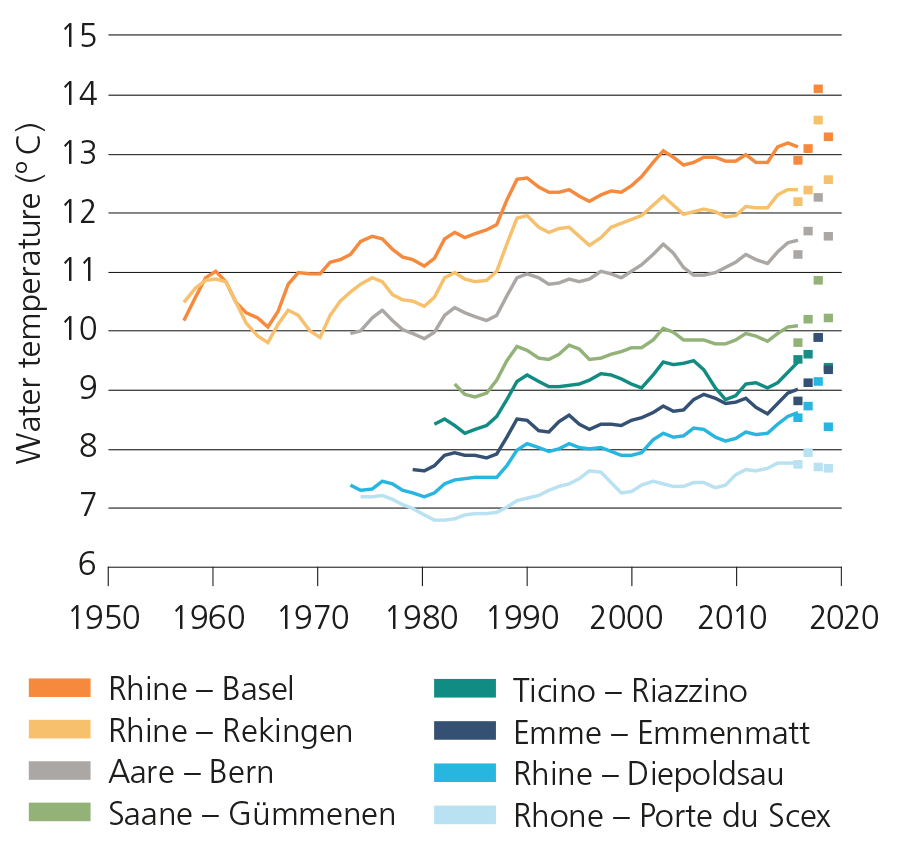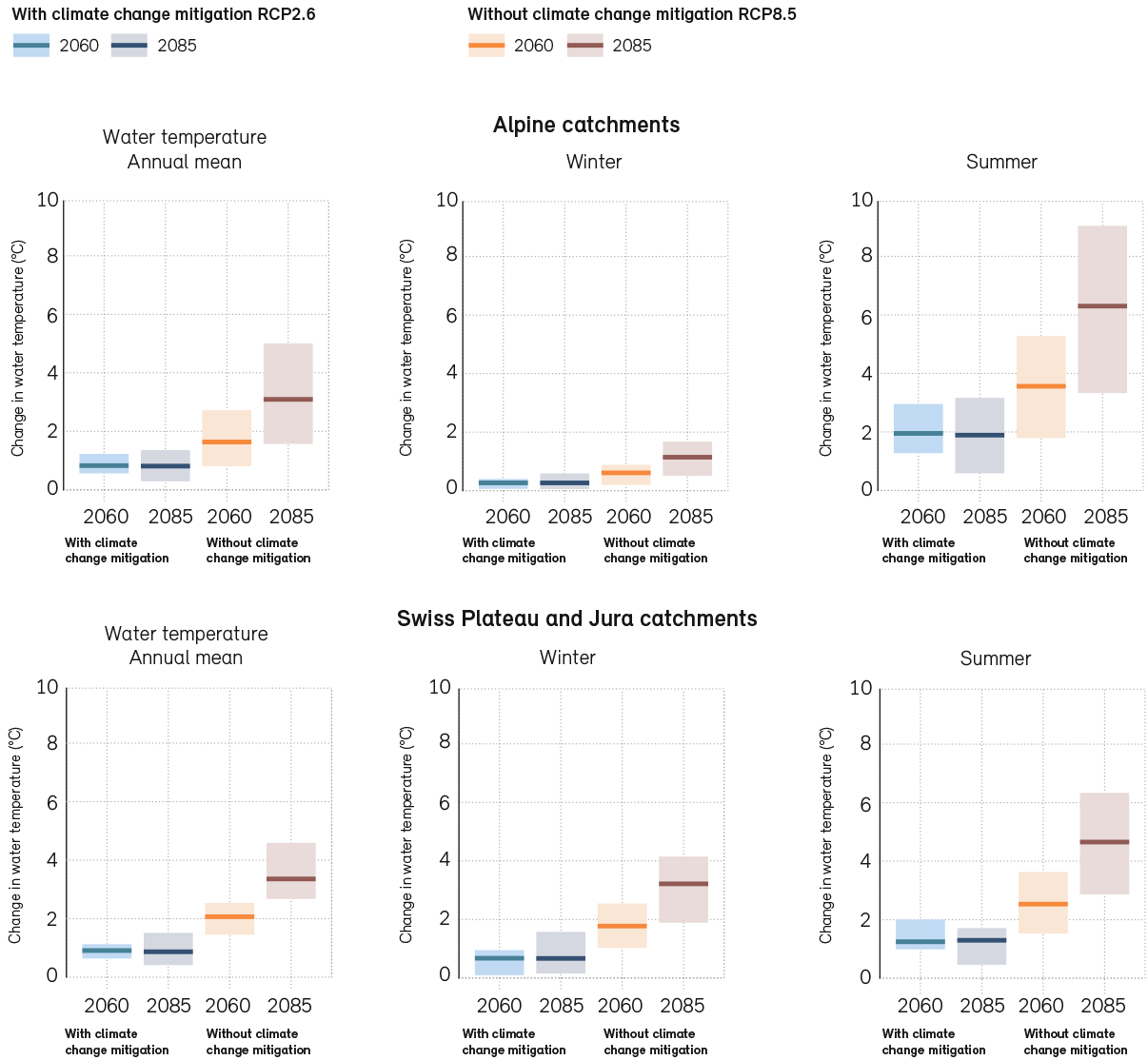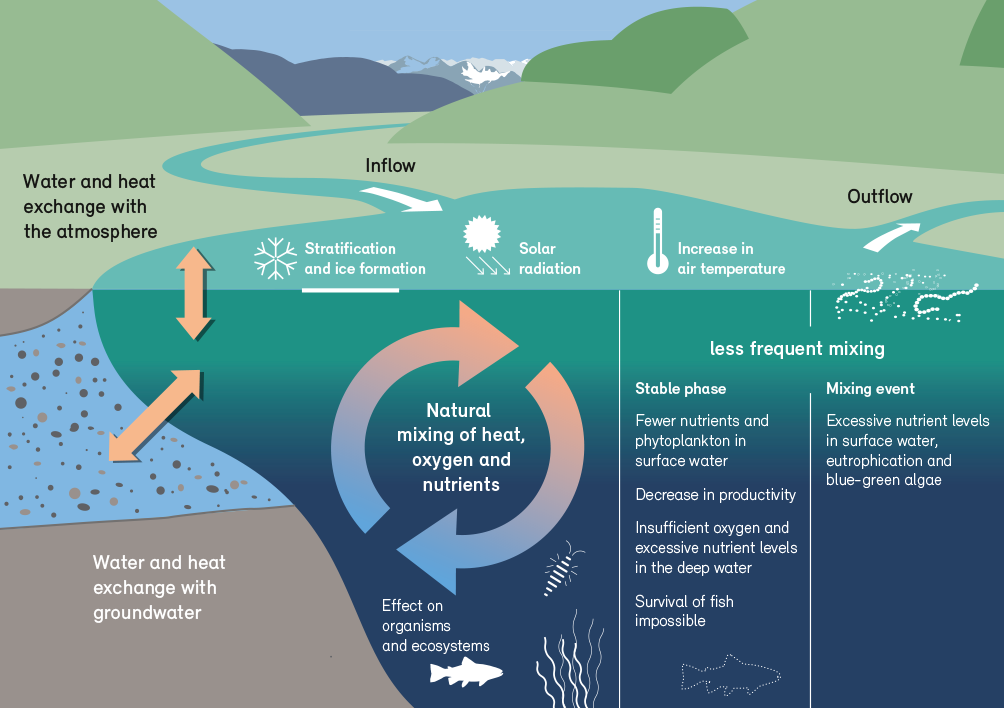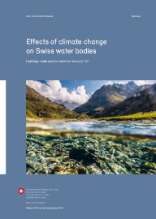Climate change increases the water temperatures in watercourses, lakes and groundwater. This warming is already clearly measurable in surface waters, though the rise in groundwater temperatures is less distinctive. Higher water temperatures, especially in summer, have negative impacts on water quality and ecology.
Increasing air temperatures and the introduction of warm water from cooling and wastewater treatment systems have raised the temperature of surface water over recent decades. The average temperature of watercourses has already increased considerably. They have warmed very substantially in summer, with much less pronounced warming in winter. The average warming of watercourses between 1979 and 2018 was 0.33°C per decade. This represents around 90% of the rise in average air temperature in the same period.
Water temperature of rivers
The hydrological scenarios show that this rise is set to continue, especially in summer and in the alpine regions. By mid-century the models predict warming by 2°C on the Swiss Plateau and 1.6°C in alpine waters; by the end of the century these numbers rise to 3.2°C in all watercourses – unless effective climate change mitigation measures are taken.
Change in the water temperature in watercourses on the Swiss Plateau and in the Jura and Alps
Warmer lakes mix less frequently
The average warming of the surface water layers of Swiss lakes in recent decades is approximately 0.4°C per decade. Researchers have modelled the future development of temperature and stratification regimes for 30 lakes. A further increase in the temperature of the surface water layer (down to 1 m deep) is expected in all the lakes: for a scenario without climate change mitigation of between 3 and 4°C in most lakes towards the end of the century.
As a result of the altered water temperatures, the mixing regimes of the lakes are changing: The stable stratification conditions in summer are lasting longer, but winter stratification is occurring less often and the formation and duration of the lake ice is decreased.
The frequency and intensity of mixing in the waters is vital for the lake ecology, as it is the only means of establishing a balance of substance concentrations (nutrients, oxygen and pollutants) between deep and surface water.
Throughout Switzerland, no clear indications of warming have yet been detected in groundwater – in contrast to the surface waters. However, groundwater temperature has already increased significantly in urban areas due to human activity. There will continue to be wide local variations in groundwater temperature in the future.
Important processes in lake ecosystems which can be altered by climate change
Further information
Last modification 12.05.2021
Contact
Federal Office for the Environment FOEN
Hydrology Division
Papiermühlestr. 172
3063 Ittigen












